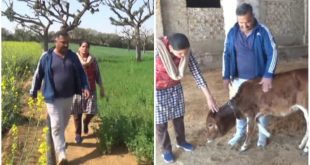 PM Kisan Scheme: A Closer Look at the Recent Developments
PM Kisan Scheme: A Closer Look at the Recent Developments
In recent times, the Pradhan Mantri Kisan Samman Nidhi (PM Kisan) scheme has been at the center of attention due to some significant developments, particularly in the state of Bihar. This article delves into the latest updates regarding the scheme, including the identification of ineligible beneficiaries, the recovery process initiated by the government, and similar incidents in other states.
Introduction to PM Kisan Scheme
The PM Kisan scheme, initiated by the Indian government, aims to provide financial assistance to small and marginal farmers. Under this scheme, eligible farmers receive direct income support of Rs. 6,000 per year in three equal installments.
The Issue in Bihar
In Bihar, a recent revelation has sent shockwaves through the farming community. It has come to light that more than 81,000 beneficiaries were identified as ineligible for the PM Kisan scheme. This discovery has prompted the government to take strict actions to recover the funds disbursed to these ineligible beneficiaries.
Identification of Ineligible Beneficiaries
According to a report by the PTI, Alok Ranjan Ghosh, the Director of Agriculture in Bihar, revealed that a thorough investigation by the state’s Agriculture Department identified 81,595 ineligible beneficiaries. Among them, 45,879 were included due to income tax-related issues, while 35,716 were disqualified for various other reasons. The government is now actively pursuing the recovery of approximately 81.6 crores from these ineligible beneficiaries.
Refund Collection Process
To expedite the refund collection process, the State Level Bankers’ Committee (SLBC) recently convened a meeting with top officials from various banks. Banks were instructed to release refunds promptly and issue reminders as necessary. Additionally, the freezing of bank accounts belonging to ineligible beneficiaries has been recommended. To date, some banks have successfully collected approximately 10.3 crores from these farmers.
Similar Incidents in Other States
It’s worth noting that Bihar is not the only state to face such issues. In July, Maharashtra encountered a similar situation when 14.28 lakh ineligible beneficiaries received a total of 1,754.50 crores under the PM Kisan scheme. The state government managed to successfully recover 93.21 crores from 1.04 lakh ineligible beneficiaries. Maharashtra’s Agriculture Minister, Dhananjay Munde, highlighted that some beneficiaries didn’t even possess agricultural land, yet they received benefits through the scheme. Similar instances have occurred in other states, such as Uttar Pradesh.
What Should Ineligible Farmers Do?
If you believe you have mistakenly received benefits under the PM Kisan scheme and wish to surrender them, follow these steps:
- Visit the official PM Kisan website.
- Click on the ‘Voluntary Surrender of PM-Kisan Benefits’ tab.
- Enter your registration number, captcha, and OTP.
- The total received benefits will be displayed. Click ‘Yes’ on ‘Do you want to surrender your PM Kisan Nidhi.’
- Enter the OTP.
Please note that this option is for surrendering new benefits and not for refunding money. To refund money, follow these steps:
- Visit the PM Kisan website and click on ‘Refund Online.’
- Select ‘If payment not made previously’ and enter your Aadhar number, account number, and mobile number.
- Enter the captcha code and click ‘Get Data.’ Details of the previous payments will be available.
- Click on the ‘Refund Payment’ box and enter your email ID and mobile number.
- Confirm the details and select your bank for payment.
Conclusion
The recent incidents of ineligible beneficiaries receiving benefits under the PM Kisan scheme highlight the need for a more robust verification process. It is crucial for the government to ensure that only deserving farmers receive the financial support intended for them.
 Suspense Crime Sach Ka Dam
Suspense Crime Sach Ka Dam


